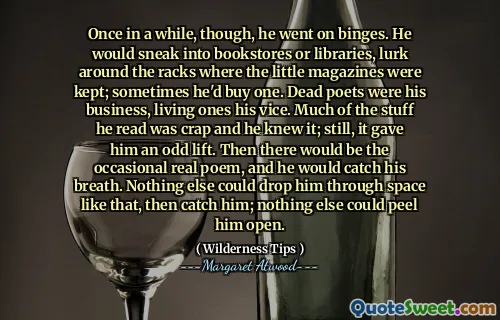I will never be that old, thinks Joanne. I will die before I'm thirty. She knows this absolutely. It's a tragic but satisfactory thought. If necessary, if some wasting disease refuses to carry her off, she'll do it herself, with pills. She is not at all unhappy but she intends to be, later. It seems required.
Joanne holds a firm belief that she will not live past thirty, a thought she finds both tragic and oddly comforting. She feels a sense of control in this conviction, convinced that if a disease doesn't take her, she will choose to end her life herself. This determination reveals her complex feelings about aging and mortality.
Despite her grim outlook, Joanne doesn't seem unhappy in the present. Instead, she anticipates future sorrow as a necessary part of life. Her reflections highlight a struggle with the expectations of happiness and the inevitability of pain, illustrating the depth of her contemplation on life and death.






